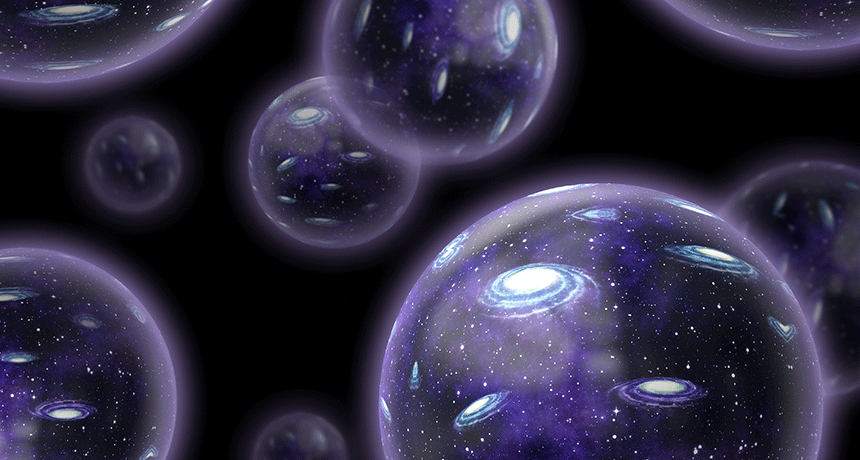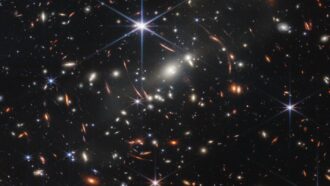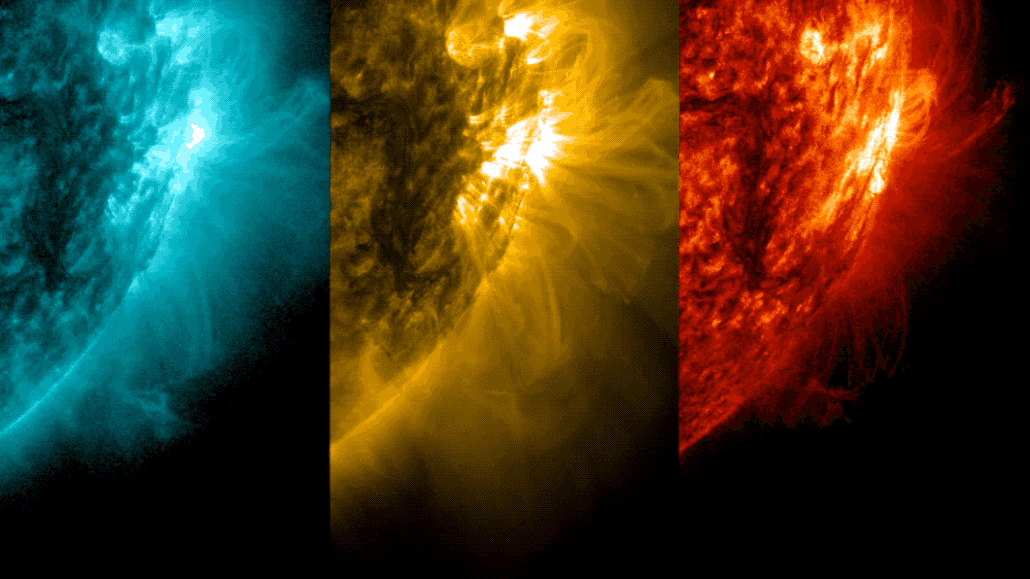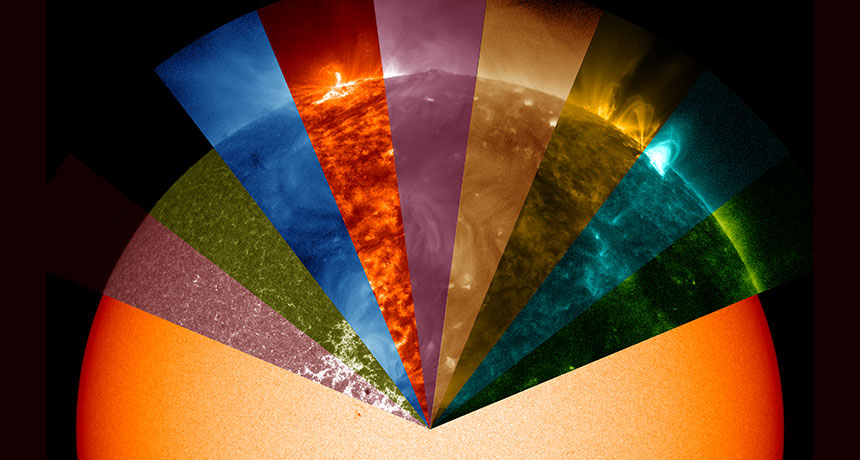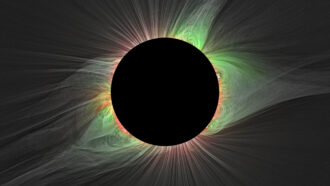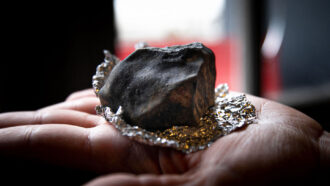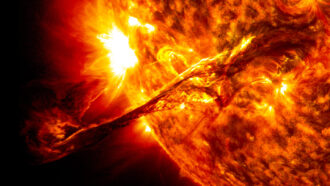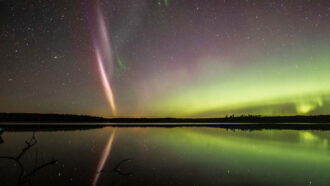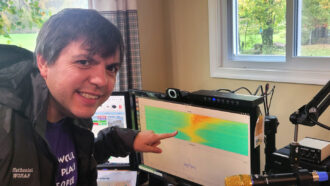Big Bang The rapid expansion of dense matter that, according to current theory, marked the origin of the universe. It is supported by physics’ current understanding of the composition and structure of the universe.
galaxy A massive group of stars bound together by gravity. Galaxies, which each typically include between 10 million and 100 trillion stars, also include clouds of gas, dust and the remnants of exploded stars.
gravity The force that attracts anything with mass, or bulk, toward any other thing with mass. The more mass that something has, the greater its gravity.
multiverse A term to connote the idea that our universe may be one of many (perhaps an infinite number of alternative universes) and that different things may happen in each.
planet A celestial object that orbits a star, is big enough for gravity to have squashed it into a roundish ball and has cleared other objects out of the way in its orbital neighborhood. To accomplish the third feat, the object must be big enough to have pulled neighboring objects into the planet itself or to have slung them around the planet and off into outer space. Astronomers of the International Astronomical Union (IAU) created this three-part scientific definition of a planet in August 2006 to determine Pluto’s status. Based on that definition, IAU ruled that Pluto did not qualify. The solar system now includes eight planets: Mercury, Venus, Earth, Mars, Jupiter, Saturn, Uranus and Neptune.
universe The entire cosmos: All things that exist throughout space and time. It has been expanding since its formation during an event known as the Big Bang, some 13.8 billion years ago (give or take a few hundred million years).
